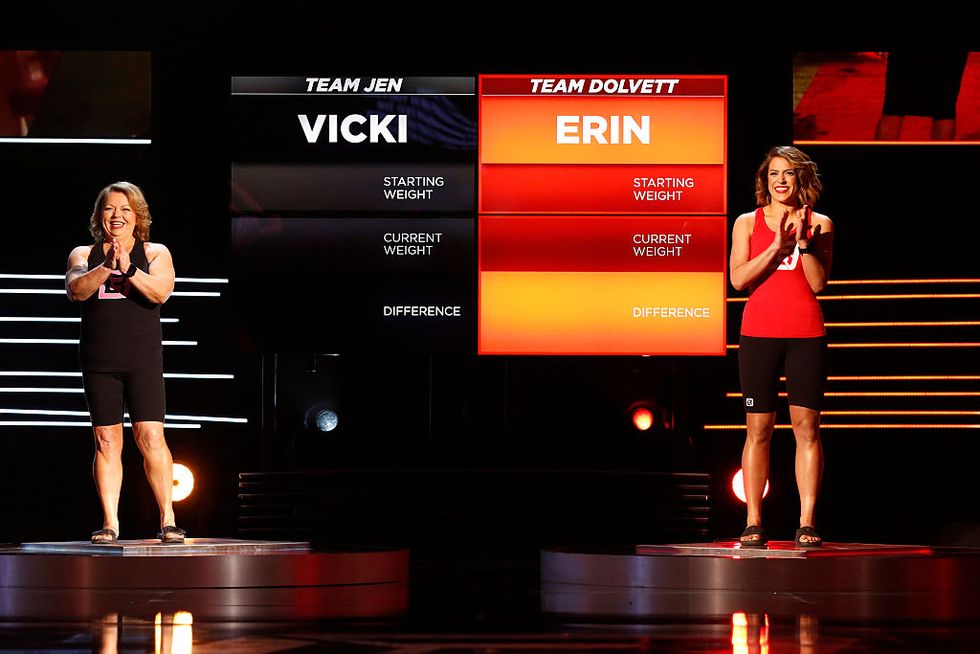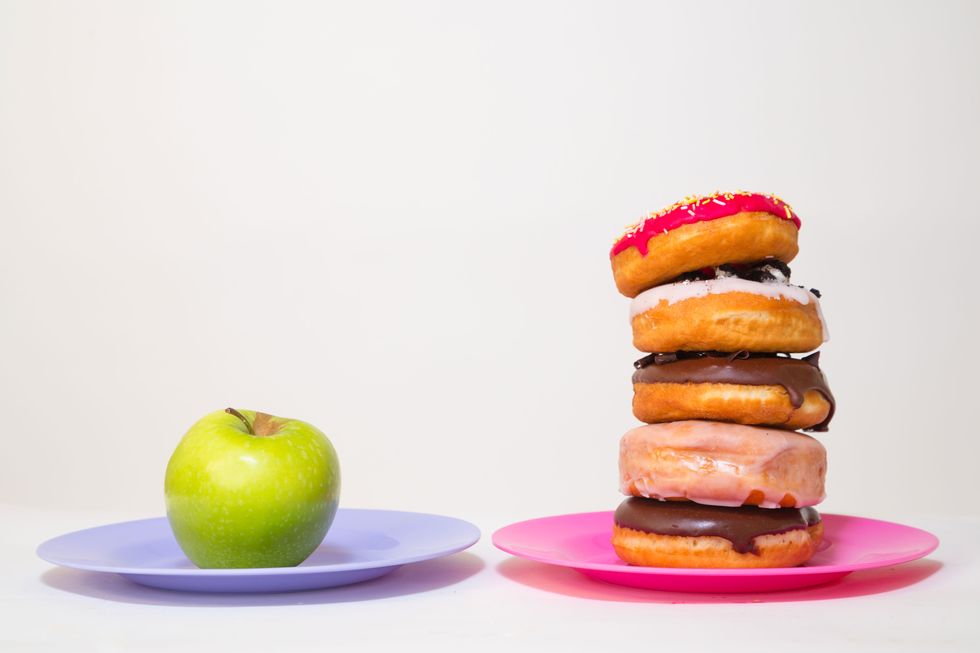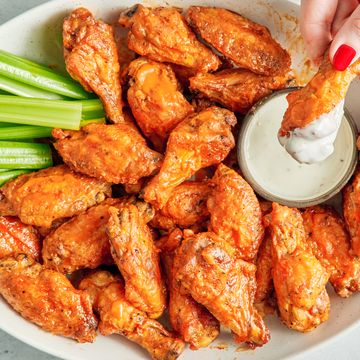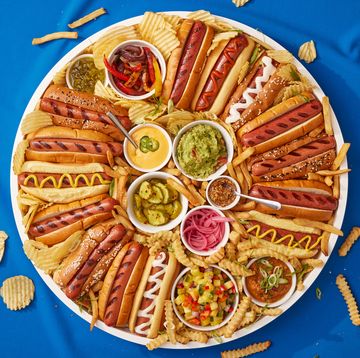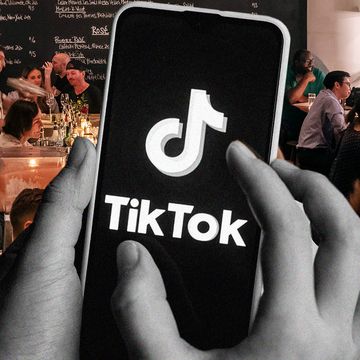It's the staggering truth behind The Biggest Loser: On average, many of the contestants gained back most of the weight they lost on the show. Four were heavier than they were before going on TV, according to a 2016 National Institute of Health (NIH) study. It's enough to make anyone give up those Crossfit classes in favor of a pack of cake rolls, but there's a silver lining to that finding — it's prompted all kinds of research and deeper analysis into major diet trends to find out what really works.
Increasingly, researchers and doctors are finding that the real key to weight loss isn't low-carb or low-fat; it's taking a much more personalized approach.
"Some people on a diet program lose 60 pounds and keep it off for two years, and other people follow the same program religiously, and they gain 5 pounds," weight-loss researcher and Harvard cardiovascular disease prevention professor Frank Sacks toldTime in its June 5 cover story.
For decades, we've followed a basic principle: Work out more, eat fewer calories, and the pounds will melt off. But, as Sacks's example shows, the end result can vary widely from person to person, and — as The Biggest Loser study showed — it doesn't mean you'll keep the weight off, even if you maintain smaller portions later.
Ask Yourself This First.
The biggest thing, it seems, is testing out each method for a few months and noting how you feel during the diet. Is it a lifestyle that wears away at you? Are you always a little hangry? Those are warning signs.
"You need a plan that satisfies hunger," iDiet founder and Tufts University nutrition professor Susan Roberts told Time. "Most diets fail because hunger erodes willpower."
If you're always feeling unsatisfied, it's hard to make a lifestyle change you can (and want) to stick to.
But Really, Is Low-Carb Better For Me?
Though some research shows low-carb diets have a slight edge over low-fat diets, you see on both sides of the spectrum widely varying results. In a 609-person study that divided people into both diet plans — "low-carb" being about 30 percent carbs and 45 percent fat, and "low-fat" being one with 29 percent fat and 48 percent carbs — each lost about the same amount. Neither group stood out for having a faster metabolism or more fat loss in the end. Even hypotheses that people who have a greater resistance to insulin would perform better on a low-carb diet didn't hold true here, the Washington Post reported.
What really worked, in this study, was changing your relationship with food. This, too, echoed Roberts' statement. Instead of focusing on the ways you're deprived — fewer calories, less fat, fewer carbs — paying greater attention to how you feel as you eat healthy may be key.
"Maybe if you just say 'Eat as much as you want until you're satiated, but eat this way until you're satiated' … I'd really like to look into that," said nutrition scientist Christopher Gardner.
Here's What You Can Learn From 'The Biggest Loser.'
Okay, here's where the news gets suckier: Remember those Biggest Loser contestants who gained weight? As the pounds crept back on, their metabolism didn't speed back up. It stayed low, the NIH study found, burning about 700 fewer calories per day than it did when they started their weight loss journey.
It's an unfortunate reality — and one to be aware of, because although The Biggest Loser's stars lose weight dramatically fast, Time found that even people who lose just a couple pounds a week can struggle with a sluggish metabolism. But there is a way to fight back. The National Weight Control Registry's study of 10,000 people who've kept pounds off found a few things in common, if not a particular diet or meal plan:
- They eat breakfast daily.
- They weigh themselves once a week.
- They watch less than 10 hours of TV a week.
- They exercise about an hour a day (with walking the most popular method).
It's a straightforward approach that sounds a lot like how the founders of Georgetown Cupcake, Sophie Kallinis LaMontagne and Katherine Kallinis Berman, lost a combined 100 pounds and kept it off for years. In the end, you just have to find what works for you — what you can comfortably tolerate — and stick to it, it seems.
Download the Delish app today.
Follow Delish on Instagram.

